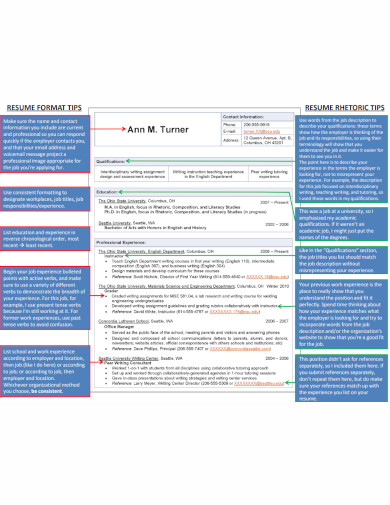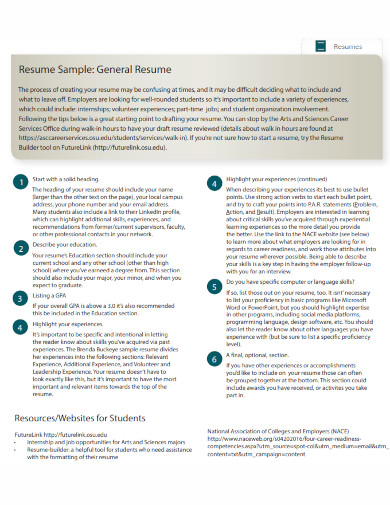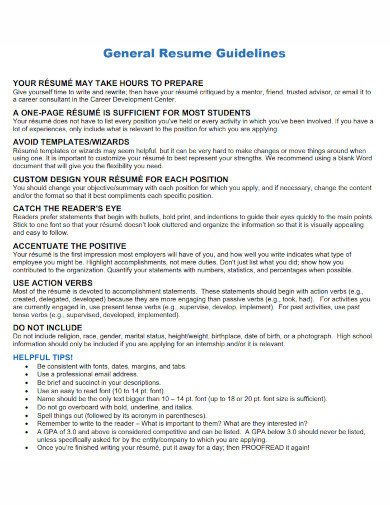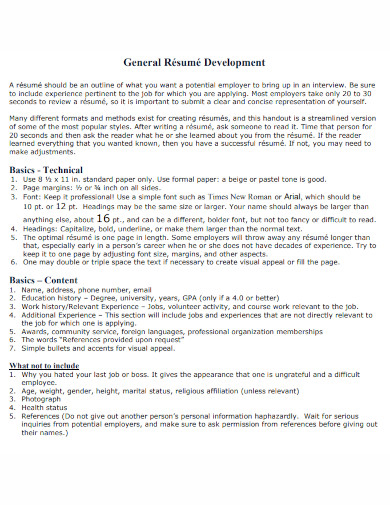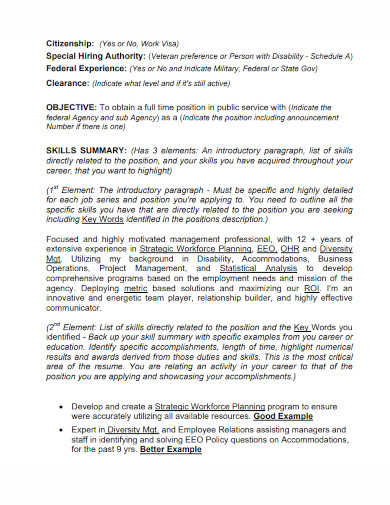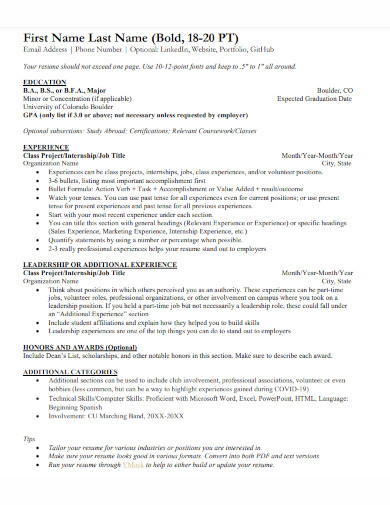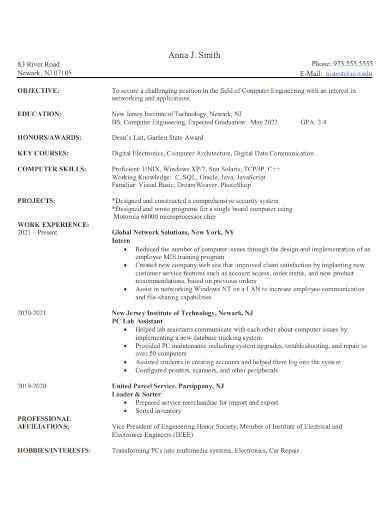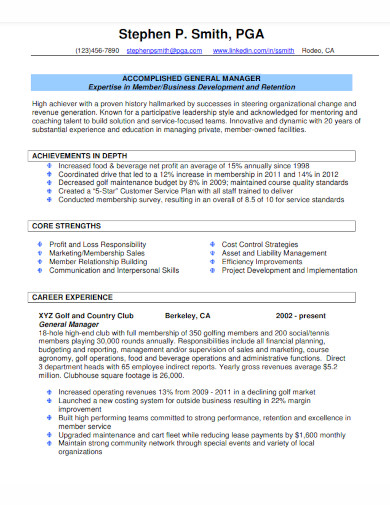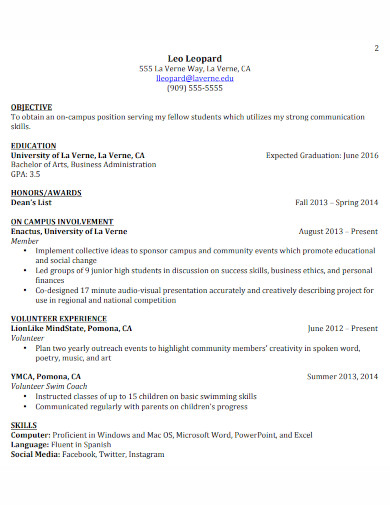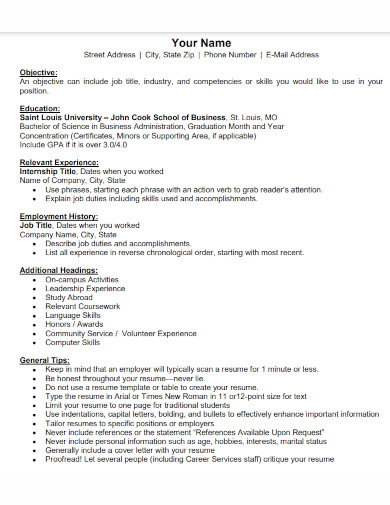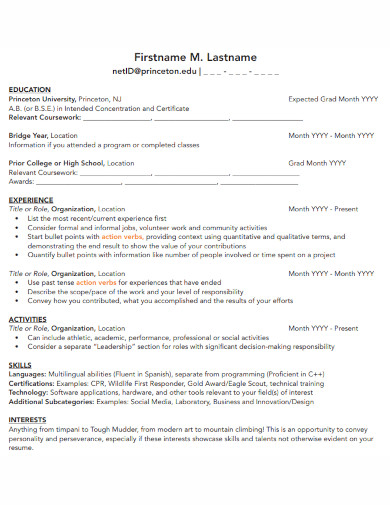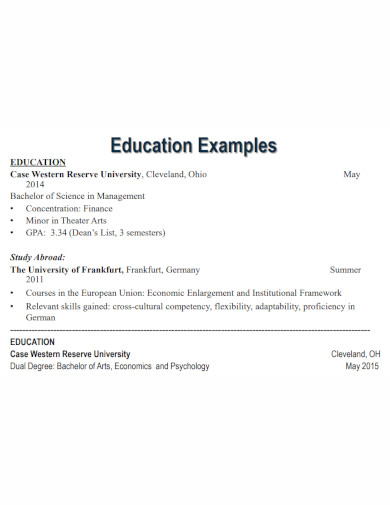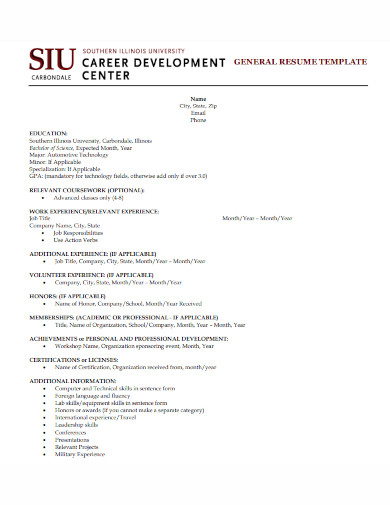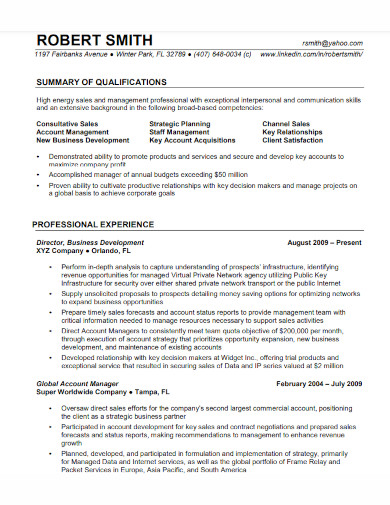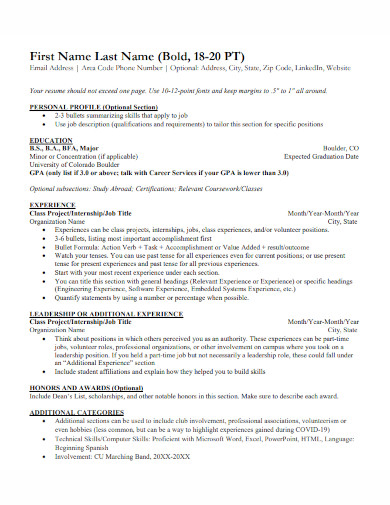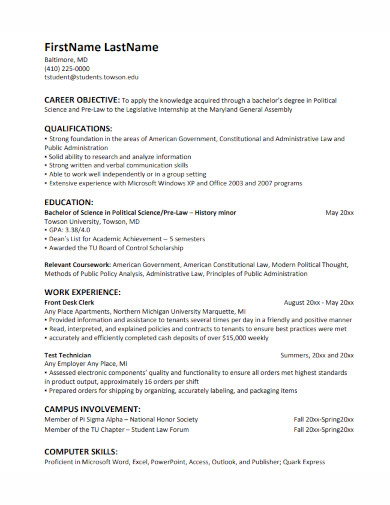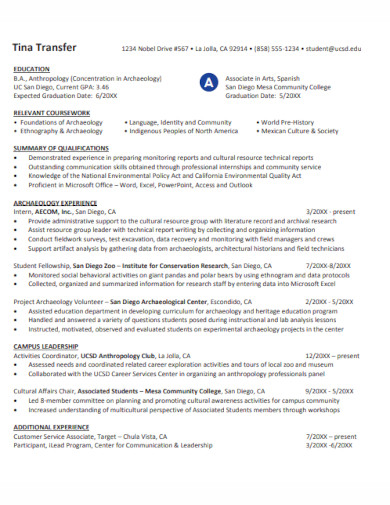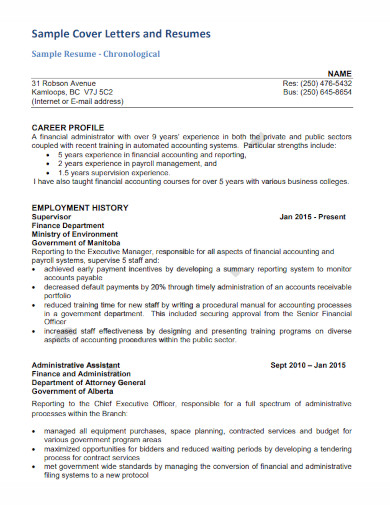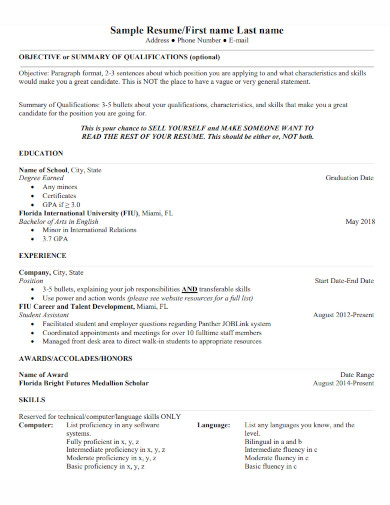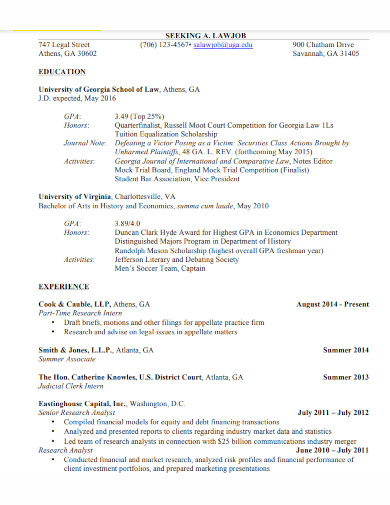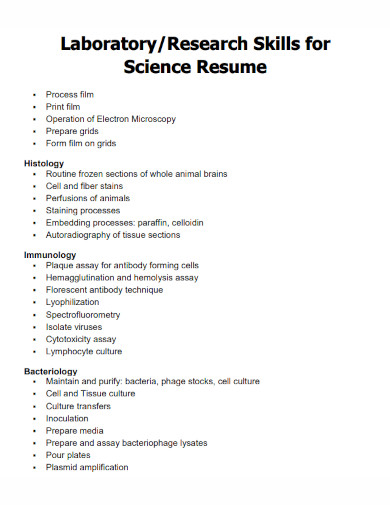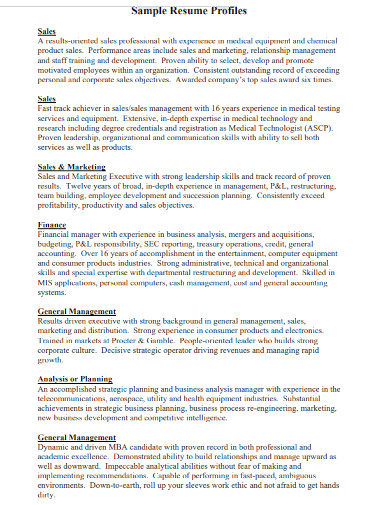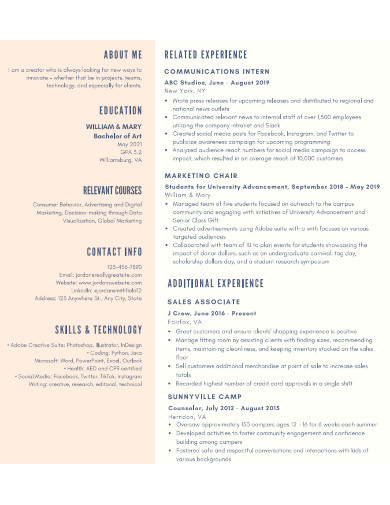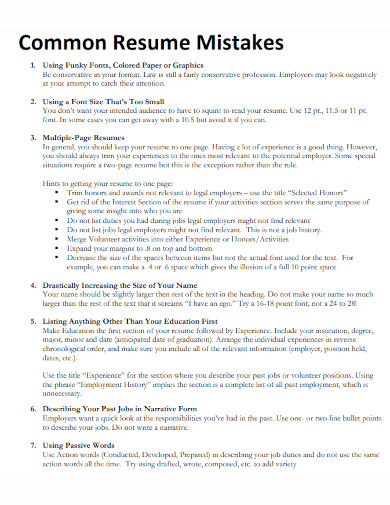23+ General Resume Examples to Download
A good resume is all it takes for you to pass through the first few steps of the hiring process. One of the best ways to ensure the quality of your resume is to use general resumes as the template you use.
1. General Resume Pre-Writing Tips
2. General Resume Sample
3. General Resume Guidelines
4. General Resume Development
5. Federal General Resume Template
6. Arts and Sciences General Resume Template
7. Introduction to General Resume Writing
8. Sample Resume General Manager
9. Undergraduate Student General Resume Examples
10. Ecomomics General Resume Template
11. Career Development General Resume
12. Effective General Resume Writing
13. General Resume Template
14. Experienced Professional General Resume Writing
15. Engineering General Resume Template
16. Political Science Sample Resume
17. Academic General Internship Program
18. Sample Cover Letters General Resumes
19. Sample General Resume First Name Last Name
20. Career Development Office General Resume
21. Research Skills for Science General Resume
22. Sample General Resume Profiles
23. Creative Careers General Resume Sample
24. General Resume Mistakes Template
What Is a General Resume
A resume is a document that will act as your placeholder in the first few parts of the hiring process. A general resume is a specific type of resume that anyone can use due to its all-around design and aesthetic.
How to Write a General Resume
A well-written general resume can increase and improve your chances of moving to the next step in the hiring process. If you want more references or templates you may use any of the general resume templates, samples, examples, and PDFs on the list above.
1.) Write Down Your Details
Begin by writing down your basic personal details on your resume. This will allow HR or the hiring manager to easily reach out to you to either inform you whether or not you have progressed to the next step of the hiring process. Make sure you are using the most accurate information for your contact details.
2.) If Needed, Write Down a Resume Introduction
A good introduction will properly set the first impression gleaned by the hiring manager or HR. If you have a cover letter or you are using an email, then the resume introduction is an optional supplement you can write on your resume. But if you are not using a cover letter or an email, then you must use the resume introduction to briefly introduce yourself in a paragraph.
3.) Fill in Your Work Experience and Education
This is the most important part of your resume as this will act as your portfolio, and will act as a reference for your accumulated experience in positions and jobs related to the one you are applying for. Write down your work or job experience and education as concisely as you can. The more experience you have, the more likely you can obtain the position you are applying for. But if you do not have any experience, do not be dissuaded or discouraged.
4.) List Down Your Hard and Soft Skills
Another important part of the resume, you must list out the specific soft skills and hard skills you have and practice. This will ensure that you will hit the specific criteria the job or position requires you to have.
5.) Write Down any Achievements
If you have any achievements related to the position you have applied for, then you must list them out as accurately as possible. This means you will include the specific year and the title of the achievement.
Are there different types of resumes?
There are plenty of types of resumes people can use depending on their objectives and preferences. A general resume can be used as an all-around resume due to its ubiquitous nature, while specialized resumes will act as a specific template allowing you to easily make your resume. Examples of specialized resumes include a cashier resume, a product manager resume, and more of the like. Note that resumes are only used in the first portion of the hiring process and will only be used as a reference later down the line.
How impactful would a simple resume be?
A simple resume can go through a long way. As much as hiring managers or HR try to remain as objective as possible when reading through resumes, they are only human. This means that sometimes the hiring manager or HR’s tastes and preferences bleed through when they are reading or perusing through resumes. A simple or a general resume will make a good enough first impression while maintaining a good reading experience and flow. Note that this not only includes the content of the resume but will also include the overall design and aesthetic of the resume.
What are the most important parts of a resume?
The most important part of the resume is the work experience and the soft and hard skills you have listed on the resume. The work experience and the soft and hard skills listed should be related to the position or job you are applying for. You can also include any achievements and titles you have achieved as long as they are relevant to the position or job you are applying for. The other parts of the resume, like the resume introduction, only serve to improve the first impression of the resume and should only be focused on after you have finished writing and listing down your work experience and soft and hard skills.
A general resume is an all-around resume an everyday person can use to apply for positions and jobs. A well-crafted resume will help ensure you will go to the next step of the hiring process. In conclusion, a general resume is the best go-to type of resume you can use.


